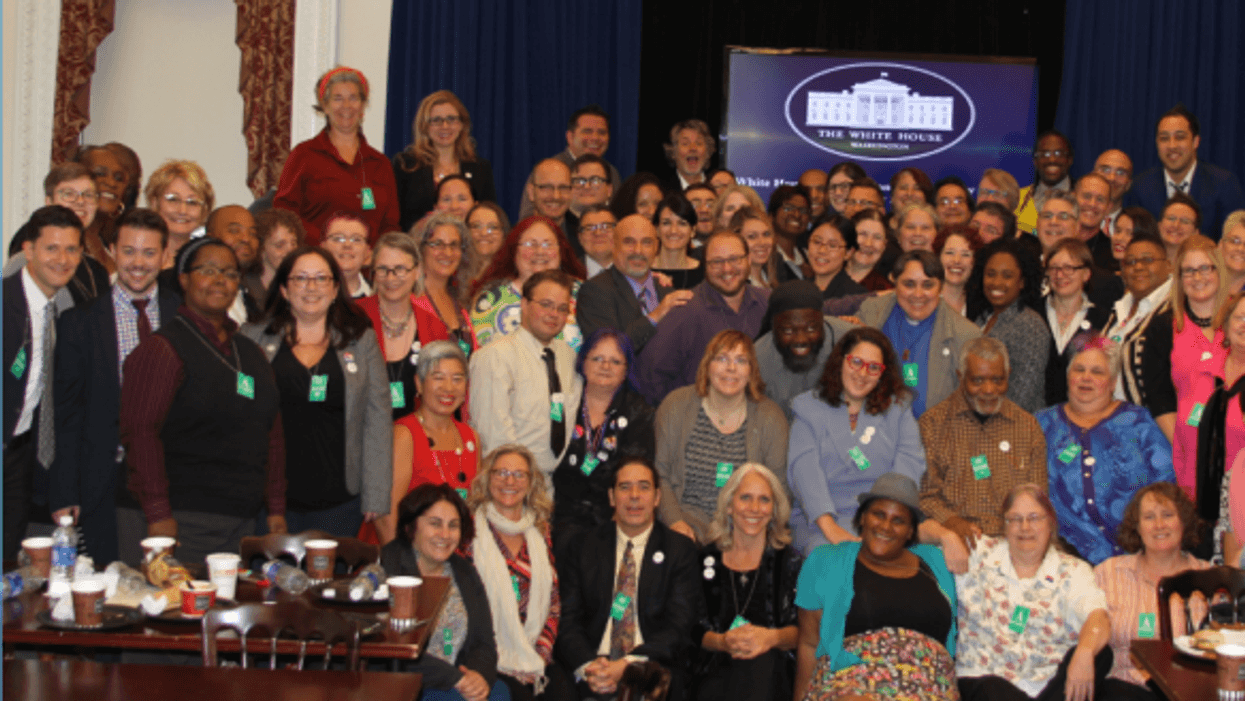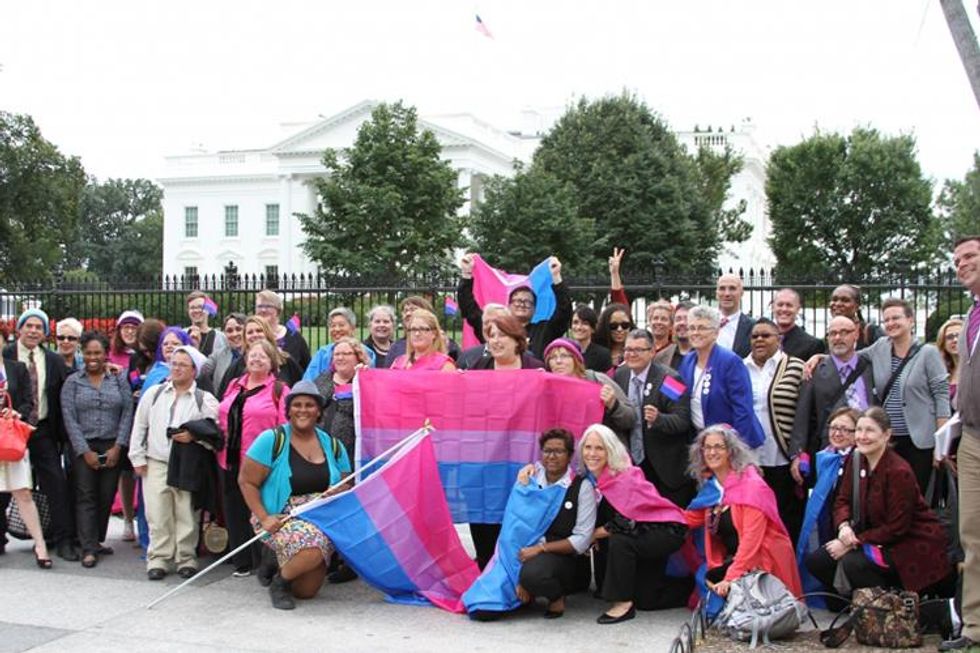Leaders from the bisexual community convened at the White House this week to discuss issues of concern to the oft-overlooked B in LGBT, that need to be addressed through public policy changes.
Monday's meeting was a follow-up to a 2013 Bisexual Leader Roundtable meeting and occurred during the second annual Bisexual Awareness Week.
The meeting was an "off the record" event, meaning participants were not at liberty to say which senior White House officials were in attendance. The Washington Blade was able to secure a quote from a White House official prior to the event, on the promise of anonymity.
"As a follow-up to the first bisexual community issues roundtable in 2013, the White House Office of Public Engagement will convene a bisexual community issues briefing with key policy advocates, health experts, activists, and administration officials, to discuss the unique disparities the bisexual community faces around health, intimate partner violence, and erasure in mainstream LGBT discourse," the official told the Blade. "The objectives for this briefing are to better shine a light on the issues within the community and explore policy interventions."

When The Advocate spoke with attendees, they stressed the proposed public policies that had been prepared for the meeting.
"I was proud to participate in an historic briefing at the White House on how the Obama administration can help address the critical disparities facing bisexual Americans, from more robust suicide prevention and mental health services for bisexual youth to recommendations on data collection to protections for bisexual asylum seekers," Heron Greenesmith, policy analyst at the Movement Advancement Project, told The Advocate.
"As part of the group of bisexual policy experts from across the country working to outline these concrete policy changes, I was struck by the volume of data highlighting just how many bisexual people face discrimination, poor mental and physical health, and violence, often at much higher rates than our gay or heterosexual peers."
The policy briefings addressed bisexual-specific needs in data collection, employment discrimination, HIV prevention and care, immigration and asylum issues, mental and physical health disparities, suicide prevention, and violence. According to the briefings, all of the areas listed are areas of concerns and have unique impacts for bisexual people.
"Perhaps one of the most valuable elements to Monday's policy briefing was the opportunities for people to share resources - those resources were our experiences, fields of work, and knowledge, all of which varied widely but were strong across the board," GLAAD media strategist Alexandra Bolles wrote of her experience at the White House gathering.
"When put together, these resources served to move the bi community as a whole towards cultural and political advancement," she said. "While the bi community must overcome a disproportionally high hurdle in order to access hard resources and to achieve, I felt we were in a space where being ourselves was valuable, productive, and enough."
Summaries of the policy briefings can be found on the Bisexual Awareness Week website.





































































Charlie Kirk DID say stoning gay people was the 'perfect law' — and these other heinous quotes